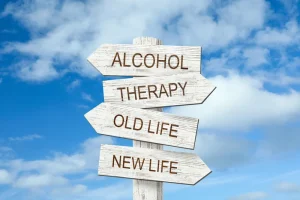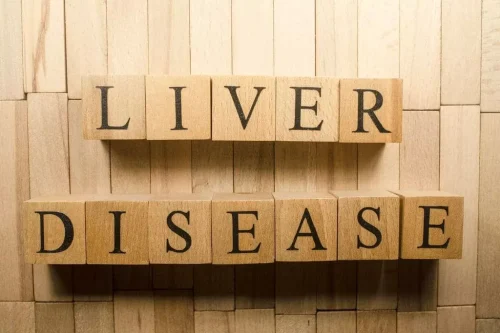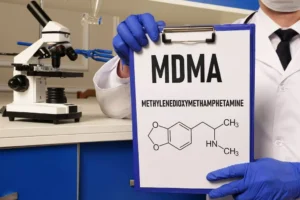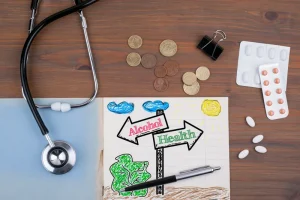
Mystical, religious or spiritual aspects of healing were widely reported in patients’ healing experiences in treatment with ayahuasca [88, 90], ibogaine [79, 86], and psilocybin [53, 81–83], as well as for different mental disorders. These were related to transpersonal experiences, feelings of awe and transcendence, a dissolving of the self, a connection to greater forces, an interconnectedness with all life, and the unity of all and everything. These insights resulted in an improved understanding of the underlying disorders, the root psychological causes [87], an improved understanding of the underlying causes of addiction [90], and, more specifically for patients with eating disorders, somatic insights [87]. Respondents also gained crucial insights into their behavior towards others with regard to relationships with friends, family or partners [78, 82]. Specific examples of these mechanisms were visions of an autobiographical nature [79], a new understanding of death and dying [81], and changes in perspective, also referred to as ‘de-schematizing’ [85]. In one study, patients describe how insights continued to evolve across and between psilocybin sessions [83].
DOES THE PSILOCYBIN EXPERIENCE REALLY BELONG IN MEDICINE?
This, however, is a good problem for the medico-legal community to face, compared with the status quo, in which the answer is firmly ‘just say no’. Many who might benefit from psychedelics may be on Medicaid, and even if private insurers begin coverage, many patients will be unable to access these therapies. Coverage should therefore be central to policy-reform efforts in federal and state governments, or the liberalization of psychedelics may leave those most in need without access. Patents on genetic technologies, cancer therapies and other innovations have engendered similar debates17.
The Emerging Field of Psychedelic Psychotherapy
While psychedelic drugs such as LSD and psilocybin are still illegal in the US, they are believed to have the potential to treat a range of conditions including anxiety, depression, and addiction. Psychedelic studies and clinical trials are still in progress, now are psychedelics addictive more than ever before. But the research that’s currently available suggests that psychedelic therapy can be used to improve mental health in many ways. PAP with psilocybin has also been designated a “breakthrough therapy” for treatment-resistant depression.
Find a therapist
Dr. Jill Stocker is traditionally trained in family medicine with advanced certification in age management medicine and hormone optimization. She focuses on the whole person—physically, mentally, emotionally, spiritually and sexually. Her professional, evidence-based training combined with her personal and life experiences, intuitive gifts and commitment to helping others fully awaken and thrive in all areas of their lives makes for a transformational experience for her patients.
- Finally, any person from within or outside the government can petition the DEA to reschedule substances, which may trigger FDA review of available evidence.
- The experience is felt as ego dissolution, a significant part of the psychedelic experience..
- Pragmatically, we accept that minimizing the active psychological work of the therapy would be desirable (eg, therapy time is expensive) and scientifically, doing so would allow drug effects and dose to be better identified.
- In addition to accessing previously inaccessible emotions, some respondents also describe an improved ability to process unresolved emotions [87, 88].
- The value respondents attributed to surrendering to and overcoming intense, emotionally challenging experiences suggests that therapeutic alliance may be crucial in establishing patient safety.
- Whether it’s a clinical setting or a retreat, it’s important to understand that ingesting psychedelic substances alters consciousness and can make you vulnerable to suggestion.
Similarly, it could recommend the rescheduling of psilocybin because the available evidence no longer supports its current classification. Setting refers to the environment where the session takes place and the relationship with the therapist. The goal is to be comfortable with the therapist and the room where the session will take place. It is also important for patients to go into the experience feeling calm and attentive.

Designated by the U.S. government as a potential “breakthrough therapy” for PTSD and treatment-resistant depression, PAP involves psychotherapy individually tailored to a patient’s experience upon receiving a pharmaceutical-grade psychedelic drug in a medically safe way. One major area for future research is the generalizability of these clinical trials. The large majority of participants in these trials are white individuals being treated in carefully controlled research settings [40].
- Other potential solutions include encouraging inventors to sign patent pledges — promises not to enforce patent rights under certain conditions.
- Psychedelic-assisted psychotherapy has garnered large amounts of attention in recent years as the next potential breakthrough treatment for psychiatric illnesses.
- Their structure and pharmacology inspired a generation of neurochemists to understand neurotransmitters and their receptors.
- People report greatly enhanced sociability, feel as though they have “taken off the mask they wear around others,” or that the personal “wall” that separates them from others has fallen.

Studies of MDMA show that along with perceptual changes, especially regarding the passage of time, the agent promotes feelings of well-being. It prompts the release of neurotransmitters such as serotonin and dopamine involved in mood regulation and emotional processing while decreasing activity in the amygdala, diminishing feelings of fear. It also promotes the release of oxytocin, stirring feelings of emotional openness, empathy, and connectedness. Experts believe it could also help with obsessive-compulsive disorder, addiction, and treatment-resistant depression, but more research is needed. For people with severe depression, for example, research shows significant improvement after treatment, and results last about 6 to 8 weeks, on average. “As new novel compounds are approved by the FDA and DEA, patients who have not found relief from traditional medications will now have an alternative,” says Nicholson.

- Whether or not these effects will translate into a treatment of dissociation more generally remains unknown.
- A bipartite model of serotonergic functioning focused on the effects of post-synaptic 5-HT1AR and 5-HT2AR signaling.
- Multiple patients who underwent ayahuasca ceremonies to treat eating disorders provided suggestions for integrating these with conventional eating disorder treatments [88].
- In clinical trials, patients are encouraged to look inwards and engage fully with their minds.
- The majority of the studies were rated as medium/high [79, 80, 85, 90] to high quality [77, 81–84, 87, 88, 91].